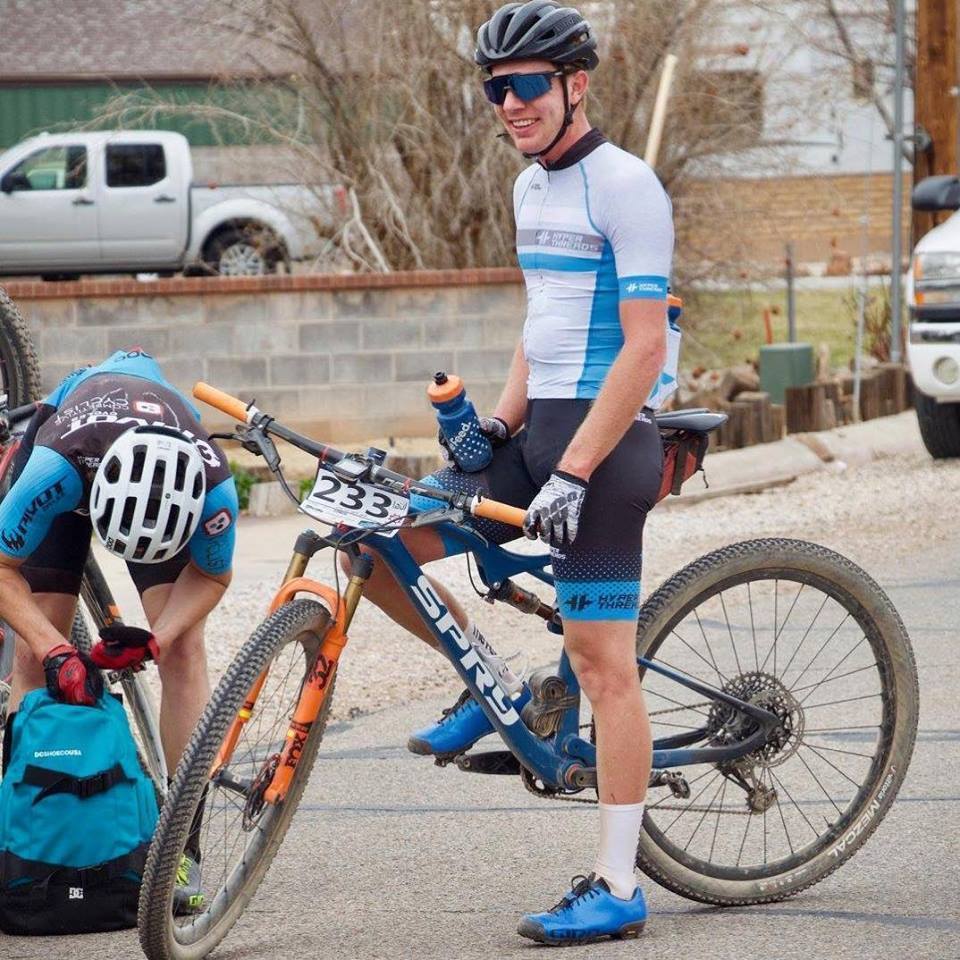
Are You up for the Crusher?
The Crusher in the Tushar, if you are not familiar, is a 70 mile gravel bike race in the Tushar mountains East of Beaver, Utah. This race covers passes that go over 10,000 feet in elevation and over the course riders will climb over 10,000 feet total elevation. The race is long, hot, and high elevation so nutritional preparation and mindfulness will be paramount.
Given that the race does take place at a high elevation, oxygen transport in the blood is even more important than it is at every other race. To help with that I will preload with BeetElite for a full 6 days prior to race day, as well as 90 minutes before race start on Saturday. Beets, and specifically BeetElite have been scientifically tested and shown to increase blood nitrates and increase athletic performance. BeetElite is great because in order to get the benefit of the nitrates in beets, you only have to drink about 6 oz. of liquid as opposed to 24-32oz if you were to just drink plain beet juice. It makes it much more viable on race day.
The night before the race I will have my go to dinner of 150 grams of salmon and 2 cups of rice with a little bit of grilled asparagus. I like the rice, because I obviously want to have carbs and thus glycogen on board for the race, but I like the salmon too to make sure I have some healthy fats and good protein to make the most of my last 12 hours of recovery before the race. Many studies have shown many benefits to fish based fats and oils, but one encouraging benefit of fish oils is their ability to promote deeper sleep. The asparagus is a great way to get additional vitamins and nutrients, I just go easy on it to avoid fiber-loading the night before a big race.
Breakfast will take place at 5:30 A.M, I’ve debated with myself whether it is worth getting up at 4:45 to get in that full 3 hours between race time and my meal that I usually have, and I’ve decided that because the race starts on a flat road and does not become too intense for about 15 miles, that will give me the additional time to digest breakfast before I really need it, and of course the extra hour of sleep will be nice! Breakfast itself will be the same as it always is for me on race day, 2 eggs fried or scrambled depending on my mood, 1 cup of rolled oats with 30 grams of real maple syrup instead of brown sugar for flavor, and 1 banana. I will also drink 16 oz of water, followed by 1 cup of cold brewed black coffee before I eat any solid food. The cold brew is less acidic and has more caffeine than hot coffee so its easier on the gut and does a better job of waking me up, having it before breakfast also kickstarts the metabolism for the day.
Once the race starts at 8 am, I will try to eat about 55 grams of carbs per hour for the duration of the race. I have found I can process about 55-65 grams of carbs per hour max before I start to get sick. For me, this is right around 1 gram of carb, per kilogram of body weight, per hour. I expect to finish in the 4:10-4:25 range for total race time, so I don’t think it is necessary to risk getting a stomach ache trying to force down more carbs than necessary, when 55 grams per hour in addition to the glycogen stores I will start the race with, will do the trick in avoiding the dreaded bonk. 4.25 hours x 55 grams per hour means I will have to take on 233 grams of carbs throughout the race. I will try to drink the majority of my carbs with Maurten 160, Maurten 160 has 39 g of carbs per 500 ml, so I will drink 4 bottles of that which will put me at 156 g of carbs. I will keep the electrolyte stores up with 2 Roctane Gus, which contain 21 grams of carbs each, as well as supplemented sodium, potassium, and amino acids. I will have 1 margarita Clif Bloks because of the triple sodium. Sodium helps the body retain fluids which will be very important when we hit the col du crush in the blistering heat.
Carbohydrate Intake Guide
- Maurten 160 x4 = 156 grams
- Roctane Gu x3 = 63 grams
- Margarita Clif Bloks = 23 grams
- Total = 242 grams.
If you are looking to apply this to yourself, I recommend starting at 0.8-1.2 grams of carbs per kilogram of bodyweight per hour depending on how much you have practiced eating large amounts carbohydrates. So if your event is 5.5 hours, and you weigh 70 kilograms, you should probably take on somewhere between (5.5 * 70 * .8-1.2) 308 and 460 grams of carbohydrate to avoid bonking. It’s different for everyone, and the best way to figure it out is to practice and take note of how your body responds. Remember to stay hydrated and take on 500-750ml of water an hour as well throughout.
When I finish I will quickly down a First Endurance Ultragen 2 scoop serving, and I like to mix it with unsweetened almond milk for better flavor! Then I will try to get a nice protein and carb heavy meal to get my glycogen back and start the muscle recovery process.
Hopefully by looking at my nutritional plan you can apply some of the lessons I’ve learned over 200 + bike races and apply that to your race in a way that helps you achieve your goals. Every product I use I have found through trial and error and tested to be the best for me, all of the products I have mentioned are available through my hands-down favorite nutrition resource, thefeed.com If you have any questions about nutrition, or equipment for the Crusher in the Tushar or bike racing in general, message me on instagram @zachcalton. Cheers and good luck!


